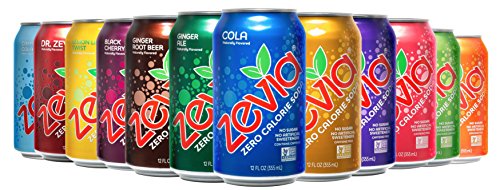Findings of a study on the link between sucralose and cancer that caused uproar when they were presented at a cancer conference in 2013 have finally been published.
The food industry dismissed the results of the study when they were presented in London, but they are now available for the world to see in the peer-reviewed International Journal of Occupational and Environmental Health.
In response to the study, the consumer group The Center for Science in the Public Interest (CSPI) is recommended that people avoid consuming sucralose, more popularly known as Splenda.
 Zevia Zero Calorie Sod...
Buy New $24.99
(as of 10:55 UTC - Details)
Zevia Zero Calorie Sod...
Buy New $24.99
(as of 10:55 UTC - Details)
The study found that:
“sucralose administered in feed to Swiss mice at dose levels of 0, 500, 2,000, 8,000, and 16,000 parts-per notation (ppm) from prenatal life until natural death induces a significant dose-related increased incidence of malignant tumors in male mice.”
The researchers write:
“These findings do not support previous data that sucralose is biologically inert. More studies are necessary to show the safety of sucralose, including new and more adequate carcinogenic bioassay on rats. Considering that millions of people are likely exposed, follow-up studies are urgent.” [1]
In the study, 457 male mice and 396 female Swiss mice were given feed containing varying concentrations of sucralose from the 12th day of gestation until death. When just 6.7% of the mice remained alive, after the rest had reached their natural lifespan, the remaining mice were euthanized and the organs were collected for analysis.
The researchers found a significant dose-related incidence of malignant tumors and hematopoietic neoplasias in male mice, particularly at 2,000 and 16,000 ppm.
Additionally, the scientists found:
“In females, [the data show] an increased incidence benign tumors and total tumors per 100 animals treated at various doses of sucralose, in particular harderian adenoma, polyp of the glandular stomach, adenoma, and cystodenoma of the ovaries and polyp of the uterus.” [1]
The team acknowledges that the reason for the increase in malignant tumors cold be attributable to the 20% decrease in mean body weight in both sexes of the mice that were given the highest levels of sucralose.
Furthermore, they acknowledged that sucralose is able to alter gut microbes.
 NOW Foods Better Stevi...
Buy New $8.16 ($8.16 / Count)
(as of 10:25 UTC - Details)
NOW Foods Better Stevi...
Buy New $8.16 ($8.16 / Count)
(as of 10:25 UTC - Details)
Not everyone is convinced of the study’s accuracy, however. Forbes magazine criticized the study’s lead author and called the Ramazzini Institute “something of a joke in European and American science.” The institute has also authored studies focusing on the potential dangers of aspartame.
Forbes needled the institute, claiming that whenever it tests for cancer, it “always seems to be positive, whereas other laboratories testing the same substances repeatedly fail to come up with the same findings.” [2]
The Food and Drug Administration (FDA) claims it reviewed 10 studies before it classified Splenda “generally recognized as safe.”
The overall consensus, of course, is that small amounts of sucralose won’t give you cancer. Great. But it’s not that simple.





